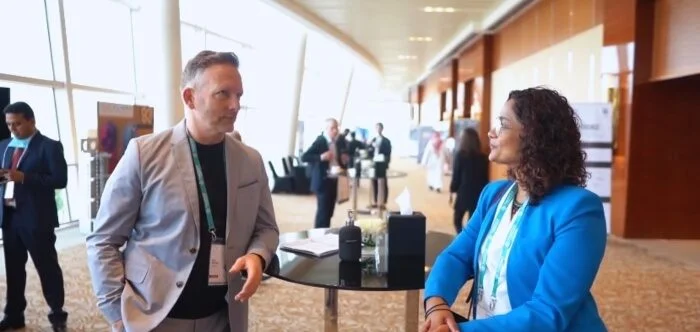Volunteering at a conference is an opportunity to be part of an event’s backbone, playing a crucial role in its success. But what does a volunteer do at a conference?
These dedicated individuals are the gears that keep the event running smoothly. They provide vital information to attendees, engage with visitors to ensure a welcoming atmosphere, offer directions to navigate the often complex conference layouts, and manage the lost and found, reuniting attendees with their misplaced items. But their contributions go far beyond these tasks.
As you dig deeper into this article, you’ll discover the multifaceted roles volunteers play in making a conference a memorable experience. Join us as we explore the unseen yet significant impact of volunteers in these bustling hubs of knowledge and networking.
Conference Volunteers – Who Are They?
Conference volunteers are helpful individuals who support event organizers by handling tasks that keep everything running smoothly for attendees. They typically welcome guests, manage registrations, distribute materials, and guide participants throughout different areas of the conference venue. Volunteers usually offer their services willingly, motivated by learning new skills, networking with professionals, or simply enjoying new experiences.

Many volunteers are students or young professionals gaining valuable career insights, especially at major conferences like popular conferences in Canada, or in other countries. However, Canadian events often attract volunteers from universities, offering them practical experiences and opportunities to build relationships in various industries. Without volunteers, organizers would struggle to manage large crowds effectively, highlighting how important their roles are in successful events.
Qualifications to Become a Volunteer
Volunteering, particularly at conferences, entails more than mere attendance; it demands specific qualifications to guarantee the conference event organizer and the volunteer’s engagement. Here are the qualifications required to become a volunteer at a conference:
- Enthusiasm for the Event’s Theme: A volunteer’s interest in the conference topic is essential. It fuels their engagement and enhances their interaction with attendees.
- Strong Communication Skills: Effective communication is crucial for providing information and assistance. It ensures clarity and helps in addressing attendees’ queries efficiently.
- Problem-Solving Ability: Volunteers often encounter unexpected situations. Their ability to think on their feet and resolve issues is invaluable.
- Teamwork Orientation: Working harmoniously in a team is key. A volunteer’s ability to collaborate contributes to a cohesive event environment.
- Flexibility and Adaptability: The dynamic nature of conferences requires volunteers to be adaptable. Flexibility in handling various tasks is a critical asset.
The journey to becoming a volunteer is marked by a blend of personal interest, skill sets, and a readiness to face challenges. These qualifications not only make a volunteer invaluable to a conference but also enrich their own experience, fostering personal growth and a sense of accomplishment.
What Does a Volunteer Do at a Conference?
Volunteering at a conference isn’t just about being present but actively contributing to the event’s success. Each role a volunteer takes on is key in enhancing the attendee experience. Here, we break down these roles into specific responsibilities, shedding light on what truly goes into volunteering at a conference:
Providing Information and Assistance
- Volunteers are often the first point of contact for attendees. They provide essential information, answering queries about schedules, locations, and sessions.
- Their role extends to assisting attendees with special needs. Ensuring accessibility and comfort for all is a priority for these volunteers.
- They also help in managing registration desks. This includes checking in participants, distributing materials, and guiding them through the event’s itinerary.
Facilitating Sessions and Workshops
- During sessions and workshops, volunteers play a crucial role. They assist speakers with setup, manage timekeeping, and facilitate Q&A sessions.
- They ensure that each session runs smoothly. This involves checking audio-visual equipment and coordinating with the event organizers for any specific needs.
- Volunteers also monitor room capacities and manage crowd flow. They help maintain a comfortable and safe environment for both speakers and attendees.
Managing Logistics and Behind-the-Scenes Operations
- Volunteers handle the logistical aspects of the conference. This includes setting up venues, arranging signage, and managing equipment.
- They are instrumental in the coordination of meals and breaks. Ensuring timely and organized food service is a key responsibility.
- Their role extends to overseeing the maintenance of common areas. Keeping these spaces clean and organized enhances the overall experience of attendees.
Volunteers ensure everything runs smoothly at a conference. Volunteers play a variety of roles in helping an event run smoothly, from providing information to managing logistics. They can help create a positive atmosphere and provide valuable insight into the conference theme.
Benefits of Becoming a Volunteer at a Conference
Volunteering at a conference is an avenue for personal growth, skill enhancement, and networking. The benefits of volunteering at a conference extend beyond the event itself. Volunteers gain experiences that resonate both professionally and personally.
Networking Opportunities
Volunteering opens doors to meeting professionals and experts in the field. It facilitates connections that can lead to future job opportunities or collaborations. Engaging with speakers and attendees enriches your professional network. These interactions often lead to lasting professional relationships.
Learning and Development
Volunteers gain firsthand knowledge of the conference’s subject matter. This exposure broadens their understanding and keeps them abreast of industry trends. They develop practical skills in event management and coordination. Additionally, handling various tasks sharpens problem-solving abilities.
Enhanced Communication Skills
Regular interaction with diverse groups of people hones communication skills. Volunteers learn to convey information clearly and effectively. They also develop the art of listening, understanding, and responding appropriately. These skills are valuable in any career path.
Sense of Community and Contribution
Volunteering promotes a sense of belonging to a community. It offers the satisfaction of contributing to the success of an event. This involvement strengthens community ties and builds a sense of purpose. It’s fulfilling to see the direct impact of one’s efforts.
Personal Growth and Confidence Building
Navigating the challenges of volunteering boosts self-confidence. Volunteers learn to adapt to new situations, enhancing their resilience. They discover new interests and potentials within themselves. Such experiences contribute to personal growth and self-awareness.
There is more to volunteering at a conference than just lending a hand; it is a rich and educational experience. It provides a platform for professional and personal development, offering lessons and experiences that extend well beyond the conference halls. Volunteers leave with enhanced skills, new connections, and a deeper understanding of their capabilities, making it a truly rewarding experience.
Endnotes
The role of a volunteer at a conference is multifaceted and vital, answering the query, “What does a volunteer do at a conference?” with a breadth of responsibilities. They are the linchpins in providing information, managing sessions, and ensuring smooth logistics.
The journey to becoming a volunteer, underscored by specific qualifications like strong communication and problem-solving skills, highlights the importance of meticulousness in the application process. Any inaccuracies must be promptly rectified to avoid misrepresentations or missed opportunities.
Errors can have significant repercussions, potentially impacting the volunteer’s ability to contribute effectively. This discussion underscores the critical nature of accuracy and thoroughness in the application process, reflecting the comprehensive and impactful nature of the volunteer role in conferences.







